- Author Matthew Elmers elmers@military-review.com.
- Public 2023-12-16 21:49.
- Last modified 2025-01-24 09:17.
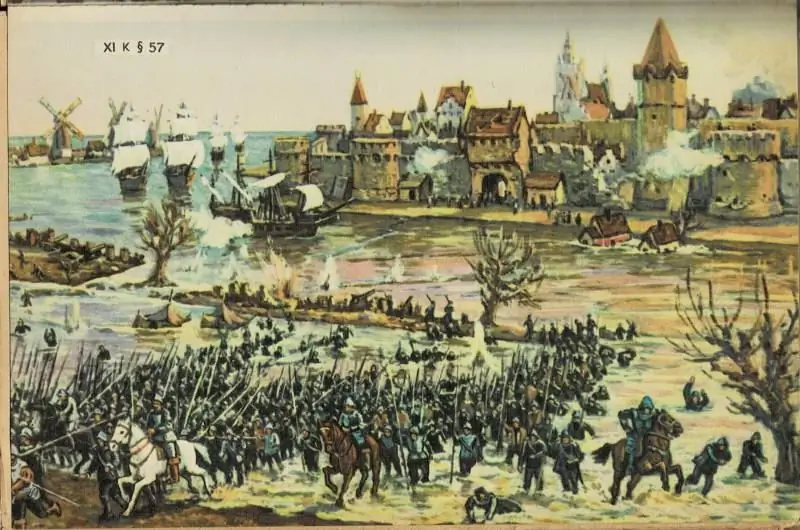
Learn, my son, and easier and clearer
You will comprehend the sovereign work!
A. S. Pushkin. "Boris Godunov"
Paradoxes of history. Not so long ago, a number of VO readers turned to me with a proposal to write about the work of the historian, to show it from the inside. And - yes, the topic seemed interesting to me. But I thought that it makes sense to expand it even more and talk about the paradoxes of this science that are associated with our knowledge of the past. As always, I will not write "in general", referring to someone unknown. The first articles will be entirely based on my memories. By the way, the majority of VO readers also approve of the memoir "part". And the benefit in this is that we will kill two birds with one stone at once.
History warehouse
I will start, of course, from childhood, where everything comes from (now at 66, I understand this especially well!). I was lucky as a child. At home in the barn there was a whole warehouse of history books, dating back to 1936. And there was no greater pleasure for me than laying out books from different years side by side and comparing pictures in them. And then also read the texts. So, thanks to this, I, for example, learned that in old Soviet textbooks the history of Russia and the West was given in parallel and it was easy to compare: what they have, what we have! Why this was abandoned after the war, I still do not quite understand …
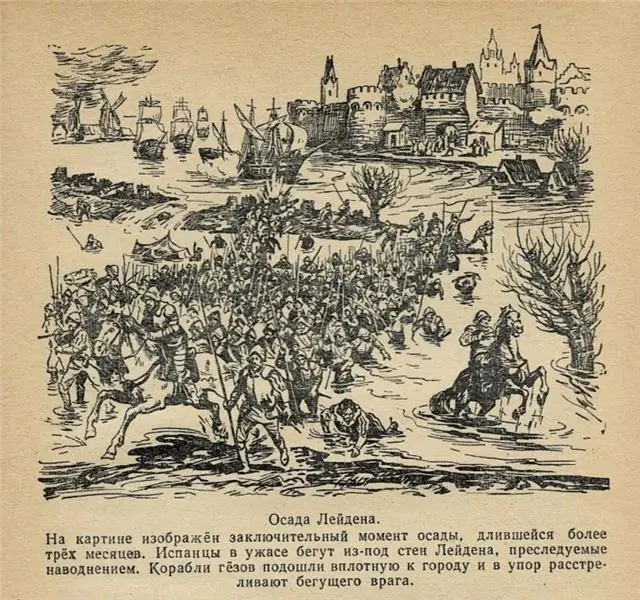
As I got older, I told everyone that I would be a historian, "like a mother." And there was no other example before my eyes. In history school, I did not know how to get fours, I participated in all the olympiads. In a word, he was "the pride of the school" and at the same time … its curse in the field of mathematics. And how much blood our mathematician Pepin Korotkiy spoiled me (a nickname that I invented for him, because he really was … more than "short"). And I can't count him.
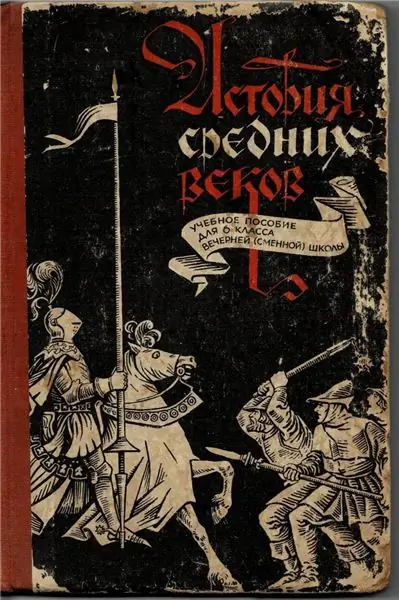
Historian with an English accent
Naturally, my road was straight to the pedagogical institute. But there was a hitch: there was no purely history faculty, since an innovation was introduced - the specialty "history and English". But since I graduated from a special school with English from the 2nd grade, there were no problems in this case. Quite the contrary: I easily did what others took a long time to do. And I used it to look after the girls, of whom we had more than half in our two groups (totaling 50 people).
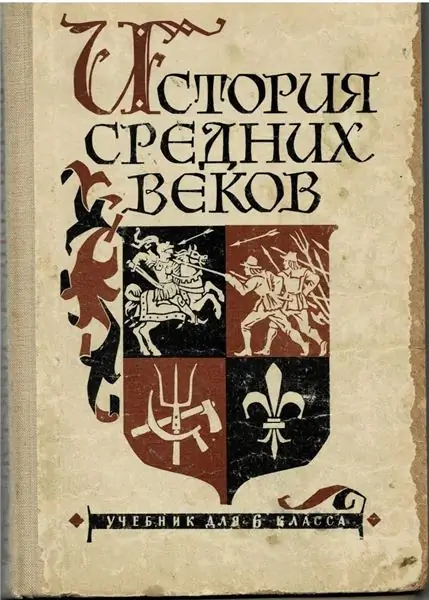
How were we taught? There was a drunkard professor and a doctor of sciences who could come to a lecture with a red face and, pointing a finger at a student, say:
“Well, you patlataya! In what year did Batu come to Russia? What you do not know? What a fool! You are long! Tell me, what did the Scythian akinak look like? What's the curve? You yourself are crooked akinak, you fool!"
“They ruled his brains,” he promised not to drink, but …
By the way, he was a friend of my own father, and he said this out loud many times (the level of pedagogical tact). Which gave me a lot of trouble: I had to teach in such a way that no one could say that my grades were undeserved.
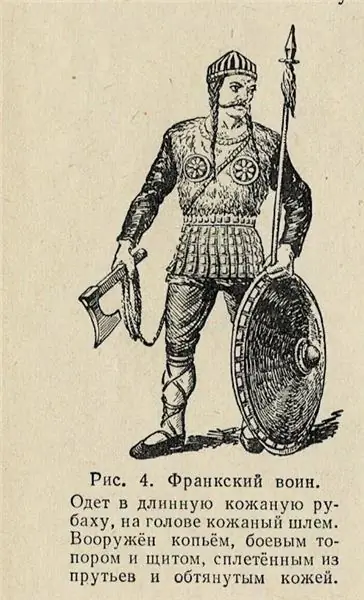
We studied in detail "Salicheskaya Pravda" and its difference from "Ripuarskaya Pravda", "Pravda Yaroslav" and "Pravda Yaroslavichi", the texts of the chronicles, Karamzin, Solovyov, Rybakov … Lord, what tremendous amounts of information. And there was no internet. Everything had to be read live.
Rural teacher
For two years the history of the CPSU was read to us by Doctor of Science Professor Morozov. I read it interestingly. This one was … "my mother's friend." True, he had the sense not to say this out loud in front of other students. But … since your "friend's" son is studying with you. Well, help him in his career? Helped! He gave a lecture "The personality cult of Mao Zedong and its consequences." It should be recalled here that (I studied at my institute from 1972 to 1977) then everyone and everywhere criticized Mao.
Well, what report could I give? What sources? On the Pravda newspaper? Later, when I myself became a teacher at the Higher School, I never gave my students such unbearable work. Do you want to do science? Here's a topic for archival materials, newspaper materials - go to the archives and work. For example, "Messages from the Soviet Information Bureau about the losses of Soviet and German troops during the war." Yes, the student had to look through 1418 newspapers. But it was small, but his personal research. According to his powers. And not about "Mao Zedong … bad."
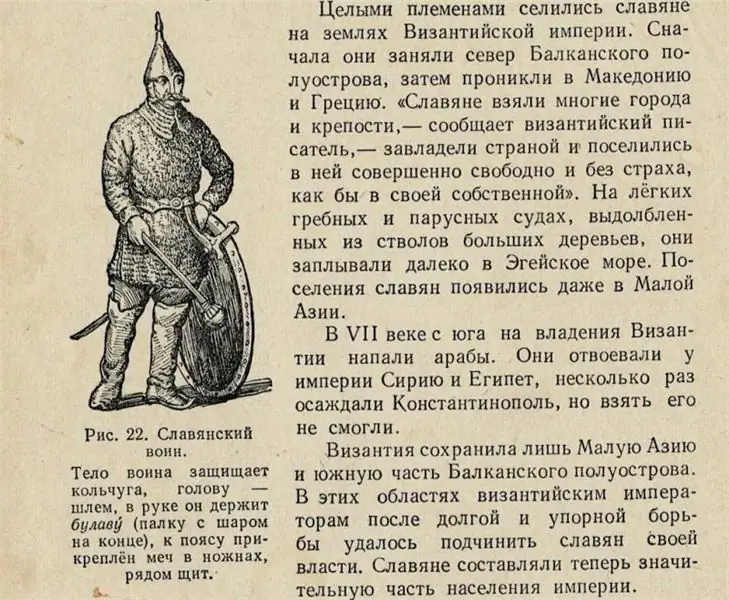
What surprised me? In order to teach in the village school, our knowledge was redundant. It would not hurt to pay more attention to pedagogy. At that time, a high school teacher did not need scientific communism, diamat and history mathematics at all, but they all hammered our heads very hard. Such an important subject as historiography was poorly given. Although, again, why would he be a teacher of a rural school?
Whatever it was, but I graduated from the institute. He worked for four years in a rural school. And in 1982 he began to work at our Penza Polytechnic Institute as an assistant in the department of the history of the CPSU. For each lesson I had to read the corresponding Leninist works. But at the same time, I was given a tough condition to pass the candidate minimum and go to graduate school in three years. Otherwise, take off.
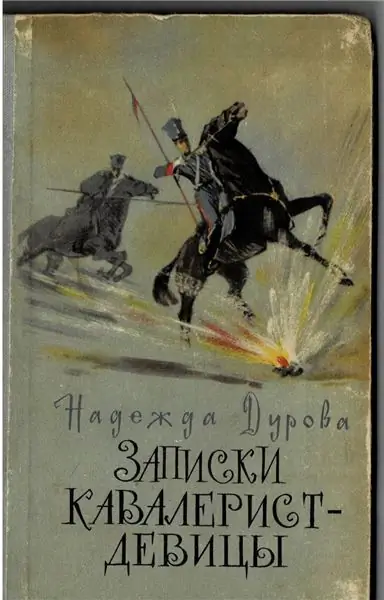
The birth of a modeler
By the way, it was then, in the early 80s, that I just began to take an interest in tanks. At first, purely utilitarian. Back in the village, he took part in the All-Union competition of the Ministry of Legislation for the best toy, dedicated to the 110th anniversary of V. I. Lenin. And he won with a model of the tank "Fighter for Freedom …". Then, in 1984, he took second place in the same competition (which was even reported by the Tekhnika-Youth magazine). Well, a bonus, of course: a trip to the famous "Ogonyok", gifts from the chief engineer for his daughter. It was all pleasant. But I liked making tank models. And how to do them if you don't understand tanks? So I started reading everything I could. This is how my self-education towards this area began.
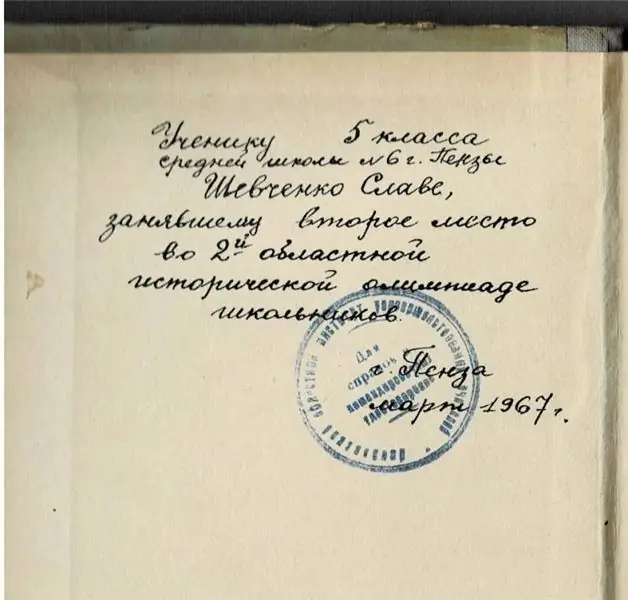
In the village, I received the magazines "Tekhnika-youth", "Modelist-constructor", "Science and life" and "Questions-history". The latter turned out to be excessive for me in terms of the level of information, but I forced myself to read it.
In the village, he began to write articles for newspapers: "Kondolskaya Pravda", "Soviet Mordovia", "Penza Pravda" and "Soviet Russia". And although these were "so-so" articles, I got my hand on them. And already in 1980 he began to write for the magazines: "Modelist-Constructor", "Family and School", "School and Production", "Club and Amateur Art", "Technics-Youth".
Well, and then I had to start passing the candidate minimum in English. To do this, it was necessary to translate into Russian a book not published in the USSR. With a certificate from the Book Chamber, and even on a specialty. I found this one about the American communist Peter V. Cochioni. I started to translate. I was convinced that I was taught English better at school than at university. (But they taught badly at school.) He translated the book in the amount of 90 pages. Passed the exam perfectly. And it is not surprising - I saw and listened to how others pass. It was an anecdote. Applicants in uniform tortured the tongue: "Ziz from …". But all were given three, and they "crawled" this line. (But, in fact, all of them did not master the exam. But … "passed" and "got into science").
The exam in philosophy (in terms of education) did not give me anything. But two exams on the history of the Communist Party of the Soviet Union, included in the candidate minimum, gave a lot. That is, I stupidly took volumes of the Complete Works of V. I. Lenin and read. Moreover, he also conducted seminars for students. The load was as follows: 15-16 groups a day. I meet (now sometimes) with a doctor of sciences, professor Karnishin and his wife (also a doctor of historical sciences, a professor): we remember our youth, how we started together as assistants, and laugh. After that, nothing was scary for us: six o'clock from 8 in the morning, then at the evening parties - from 19 to 22:30. And so almost every day. So, against your will, you will know Lenin by heart.
In my postgraduate studies at Kuibyshev State University, I had to work in the archives of the OK CPSU of Kuibyshev, Ulyanovsk, Penza, the archives of universities in these cities, as well as in the archives of the Central Committee of the Komsomol in Moscow. In the dissertation, every fact, every figure must be confirmed, so the ability to work with archival affairs, to search for information is an invaluable experience. And those who are not familiar with this from their own experience simply do not understand this.
Tanks are calling
After successfully defending my dissertation in 1988, the question arose before me: what next? And here … the British helped me a lot. At that time I considered modeling BTT as my legitimate hobby. He has already written about how to make models of tanks in the books "From everything at hand" and "For those who like to craft". Received a copyright certificate for the industrial design "Toy floating tank" and decided to write to England: they say, do you have BTT modelers? And if there is, then why should I (such a cool modeler) not correspond with you, gentlemen?
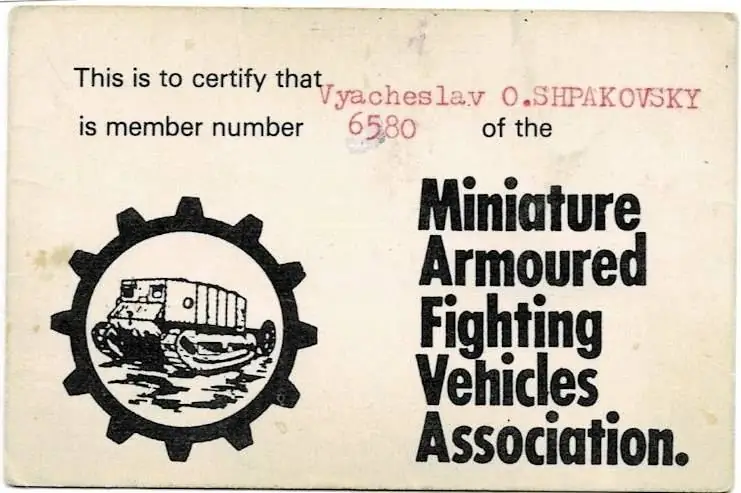
And … they answered me! And they sent their modeler magazines. And I saw that with all our NTTM and the "development of the creativity of young people", we are sitting in a deep … hole. That our people are deprived of access to the mass of beauty. And at the same time, our leaders still have the audacity to say that "the West is rotting." We are rotting, this is what I thought about when I was holding the magazines sent to me from there. "We are sitting in a bucket" and do not know the world around.
It was then that I appreciated my knowledge of English. Immediately he began to publish articles-translations from their magazines in our Soviet ones: "Aviation and Cosmonautics" and in the same "Model Designer". And in their magazines - articles "about us." Because we were also a curiosity for them at that time - like the Papuans.
The artist Igor Zeynalov designed the texts for me. And I wrote about the uniform of the civil war in the USSR, the archers of Alexei Mikhailovich, about our fortress Penza, notch features and even … about the Battle on the Ice and how their knights drowned there … It was impossible to transfer fees then, and I asked to send them between pages.
And also the "nasty" Englishmen offered me a free membership in their association of BTT modelers, if only I could write them my articles and send them photographs of the made models. After all, I did them with my own hands from start to finish. And there under "modeling" was understood something completely different.
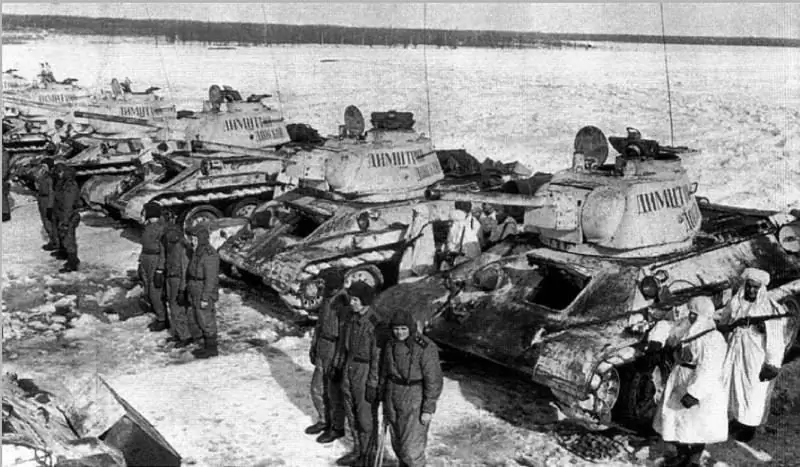
Star and cross
And then I decided that it was necessary not only to deal with the history of the Communist Party of the Soviet Union, but also what interests me, what I know. What do I know? And nothing by and large. And I went to work in the MO archive. In the fall of 1990, I got there for the first time. And he got there with the blessing of Archimandrite Innokenty, one of the "employees" of the Moscow Metropolitan's office.
I found in the newspaper a photo of a T-34 tank with a DT-5 cannon and the inscription: "Dmitry Donskoy" on the tower. I learned that these were tanks built with the money of the Russian Orthodox Church. I went to Zagorsk (this office was there then, in the Lavra). And I say that I want to write a book "Star and Cross" about the combat path of these tanks. And Innokenty answered me:
“My dear fellow, we are not allowed into the archives. Here's all our data. Here is our pastoral blessing for you. But only you yourself go to the archives of the Ministry of Defense."
It was, I would say, a blow.
But what about “nobody is forgotten and nothing is forgotten”? How did “We bring this day closer as we could”? After all, it turned out that those who fought in tanks purchased with the money of the church are worse than those who fought in tanks "Tambov collective farmer"? Because there is everything about the "collective farm", but nothing about the tanks bought with the money of believers.
By the way, I didn't find anything in the MO archive then. I spent a month there and … nothing. The employees themselves have already admired my persistence and began to help. But they didn't find anything either.
Information was unearthed already under the "Yeltsin regime". And in the era of the USSR, for some reason, it was considered terribly secret …
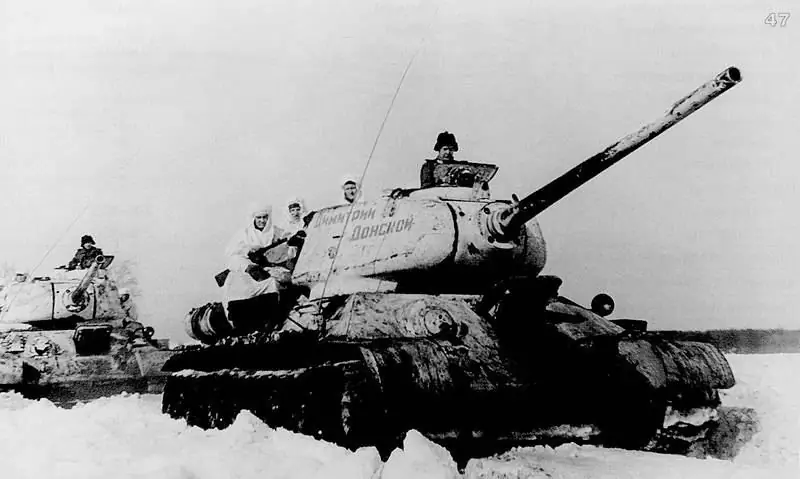
But then the fall of 1991 broke out. They gathered us (teachers of the department of history of the CPSU, lecturers of the OK and RK of the CPSU, propagandists and agitators, former retired colonels and young candidates of science) and they say - "they are no longer needed." But since the staff of teachers of your level is irreplaceable, then … here's six months for you to retrain. And we scattered to neighboring universities - "change orientation."
I chose my native pedagogical institute and underwent retraining at the MHC department - "World Artistic Culture". This is how a new stage began both in my teaching career and in the career of a historian …






